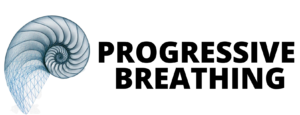The Connection Between Sleep & Nasal Breathing
Introduction
Sleep, nasal breathing practices, and meditation are essential elements for promoting overall health and well-being. Each of these practices plays a crucial role in recovery, regeneration, and optimizing brainwave states. Understanding the interconnectedness of these activities can help individuals harness their combined benefits for enhanced physical, mental, and emotional health.
The Importance of Sleep
Recovery and Regeneration
Sleep is a fundamental biological process essential for recovery and regeneration. During sleep, the body undergoes several restorative processes:
- Cellular Repair: Sleep facilitates the repair and growth of tissues, muscles, and bones.
- Immune Function: Sleep strengthens the immune system, aiding in the fight against infections and illnesses.
- Hormone Regulation: Sleep balances hormone levels, including those related to growth, stress, and appetite.
Brainwave States
Sleep consists of multiple stages, each associated with different brainwave patterns:
- Non-REM Sleep: Characterized by slower brainwaves (theta and delta waves), non-REM sleep includes stages of light to deep sleep, crucial for physical restoration.
- REM Sleep: Dominated by rapid beta waves, REM sleep is vital for cognitive functions, memory consolidation, and emotional processing.
Nasal Breathing Practices
Recovery and Regeneration
Nasal breathing, a core aspect of many breathwork practices, offers numerous benefits for recovery and regeneration:
- Improved Oxygenation: Nasal breathing ensures better oxygen uptake and delivery to tissues, enhancing cellular repair and energy production.
- Reduced Stress: Nasal breathing activates the parasympathetic nervous system, promoting relaxation and reducing cortisol levels, which supports recovery.
- Enhanced Immune Function: The production of nitric oxide in the nasal passages has antimicrobial properties and boosts the immune system.
Brainwave States
Nasal breathing can influence brainwave activity:
- Alpha Waves: Nasal breathing promotes relaxation and mental clarity, often associated with increased alpha wave activity, indicative of a calm and focused state.
- Theta Waves: Deep, rhythmic nasal breathing can lead to a meditative state, characterized by theta waves, which are linked to creativity, intuition, and deep relaxation.
Meditation
Recovery and Regeneration
Meditation is a practice that fosters mental and physical rejuvenation:
- Stress Reduction: Meditation reduces the production of stress hormones, lowering blood pressure and promoting heart health.
- Enhanced Healing: By inducing a state of deep relaxation, meditation supports the body’s natural healing processes and improves overall well-being.
- Improved Sleep: Regular meditation practice can improve sleep quality, facilitating better recovery and regeneration.
Brainwave States
Meditation significantly influences brainwave patterns:
- Alpha Waves: Meditation enhances alpha wave activity, promoting a state of relaxed alertness and reducing anxiety.
- Theta Waves: Deep meditation can increase theta wave activity, associated with deep relaxation, creativity, and access to the subconscious mind.
- Gamma Waves: Advanced meditation practices can lead to increased gamma wave activity, linked to higher cognitive functions, peak mental states, and enhanced sensory perception.
The Synergy of Sleep, Nasal Breathing, and Meditation
Enhanced Recovery and Regeneration
When combined, sleep, nasal breathing, and meditation create a powerful synergy for recovery and regeneration:
- Holistic Healing: Sleep provides the foundational physical recovery, while nasal breathing and meditation enhance this process by reducing stress and improving oxygenation.
- Integrated Well-being: Nasal breathing and meditation can improve sleep quality, creating a positive feedback loop where better sleep enhances the effectiveness of breathwork and meditation.
Optimal Brainwave States
The interplay between sleep, nasal breathing, and meditation leads to optimized brainwave states:
- Balanced Brain Activity: Each practice supports a balanced brainwave profile, ensuring periods of relaxation (alpha waves), deep creativity and intuition (theta waves), and peak mental performance (gamma waves).
- Enhanced Cognitive Function: Improved sleep quality, combined with the mental clarity from nasal breathing and meditation, leads to enhanced cognitive functions such as memory, focus, and problem-solving.
Practical Applications
Integrating Nasal Breathing into Daily Life
To maximize the benefits of nasal breathing, consider the following practices:
- Conscious Breathing: Focus on breathing through the nose during daily activities, ensuring deeper and more efficient respiration.
- Breathwork Exercises: Incorporate structured nasal breathing exercises, such as alternate nostril breathing or deep diaphragmatic breathing, into your routine.
Establishing a Meditation Practice
To enhance recovery and brainwave optimization through meditation:
- Consistency: Practice meditation regularly, even if only for a few minutes each day.
- Guided Meditation: Utilize guided meditations to stay focused and deepen your practice.
- Mindfulness: Incorporate mindfulness techniques into everyday activities to maintain a state of relaxed awareness throughout the day.
Prioritizing Quality Sleep
To ensure restorative sleep for optimal recovery and brainwave states:
- Sleep Hygiene: Maintain a consistent sleep schedule, create a comfortable sleep environment, and minimize exposure to screens before bedtime.
- Relaxation Techniques: Practice relaxation techniques, such as nasal breathing or meditation, before bed to prepare your mind and body for restful sleep.
Why Nasal Breathing
Sleep, nasal breathing practices, and meditation are interconnected tools that significantly contribute to recovery, regeneration, and optimal brainwave states. By integrating these practices into your daily routine, you can enhance your physical health, mental clarity, and emotional well-being. At Progressive Breathing, we offer comprehensive programs to guide you on this journey, empowering you to harness the transformative power of breathwork, meditation, and quality sleep for a balanced and fulfilling life.
Align Movement with Nasal Breathing for Optimal Health Outcomes.



